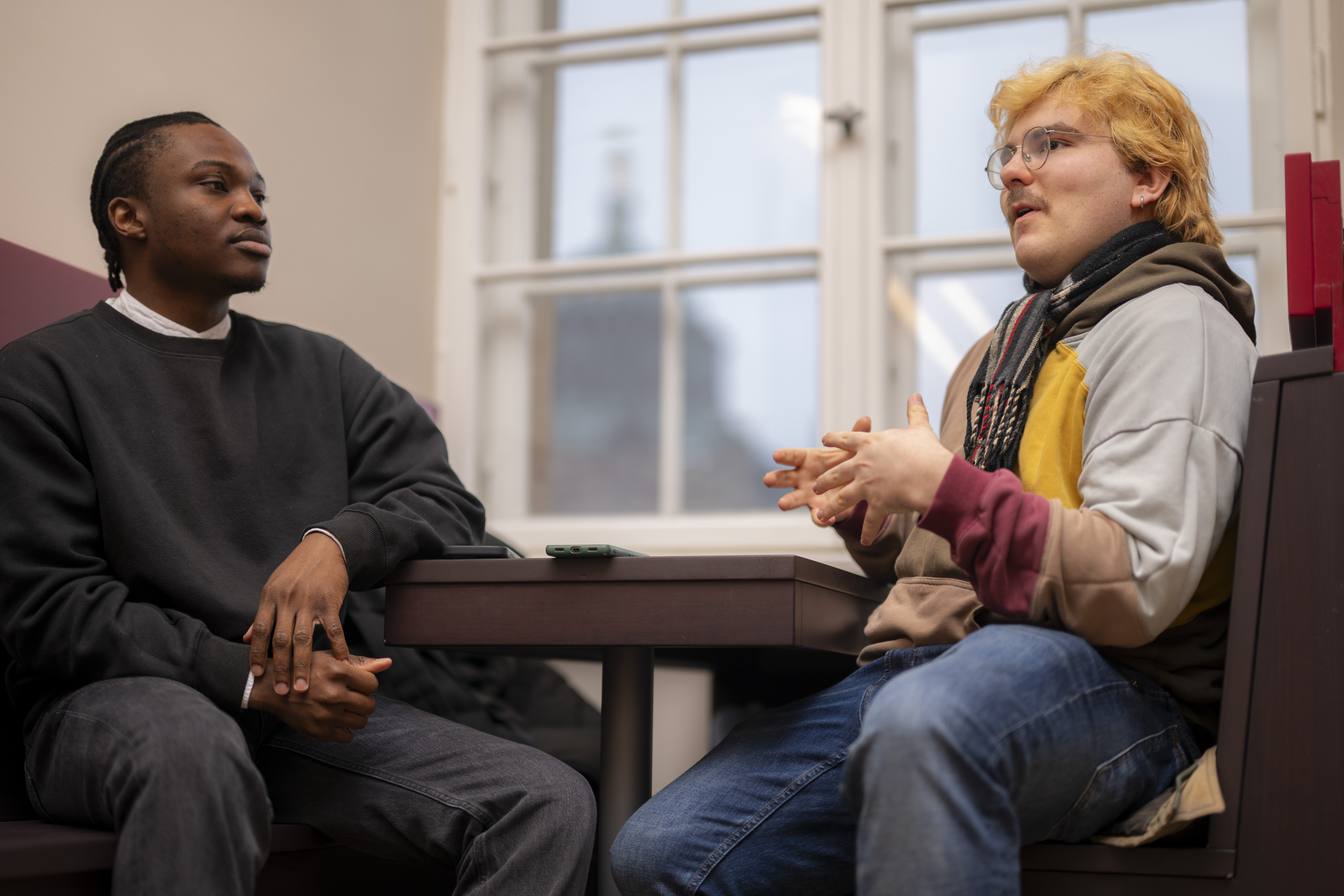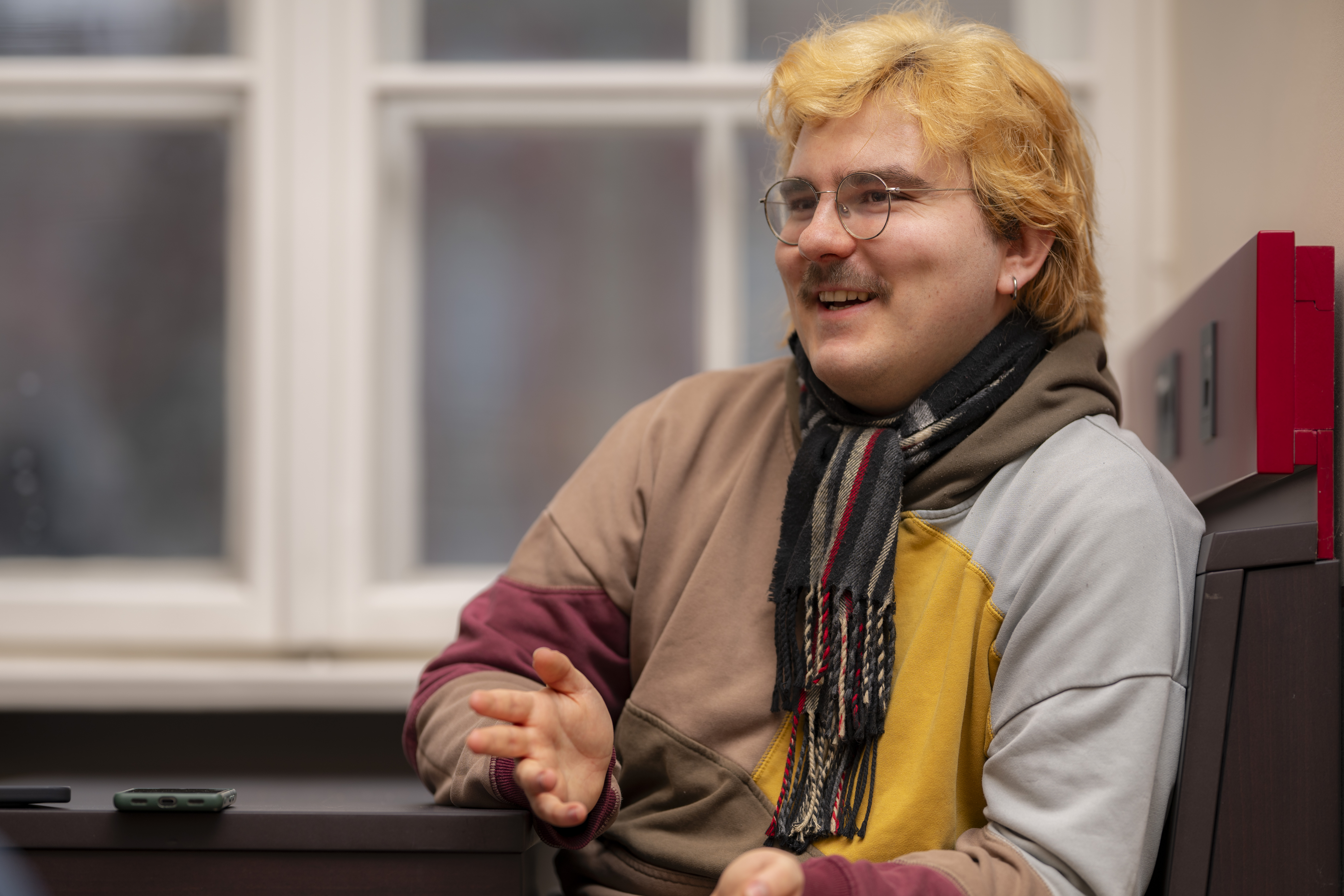
“Hello, EDUC, I study History and Philosophy at the University of Potsdam. What courses are available for me in the EDUC course catalogue?” – “Good day, Matthias, there are currently 25 courses that might suit you. I’ve compiled them for you here.” A conversation that could be closer to reality than one might think. EDUC is working intensively on digital platforms and tools designed to help students, researchers, and staff access information more easily, network effectively, and organise their studies or collaborative projects.
The Think Lab Brings Experts and Students Together
As the course catalogue is continuously expanding, the Virtual Campus also needs to be technologically enhanced and equipped with its own customised tools. “The Virtual Campus not only makes studying and working together within EDUC easier and more productive but will hopefully also help strengthen the sense of belonging within the alliance. It is important to us that we take students’ needs into account during development,” says Ulrike Schmidt from the EDUC team in Potsdam.

After all, the EDUC universities have around 200,000 students compared to “only” approximately 13,500 researchers and 17,500 administrative staff. This is why the alliance launched the Think Lab. In this initiative, IT and education experts team up with the largest stakeholder group – the students - from EDUC universities. Together they are working on the development of EDUC tools that are truly needed, including a chatbot, a professional network, and a collaborative working platform. “We want to help ensure that technological advancements are used in a way that benefits education—allowing us to expand access to learning without compromising its quality,” says Timilehin Ogunnusi, one of the two participating students from Potsdam.
A Chatbot to Facilitate a Smoother Start
Following a kick-off meeting in Potsdam in November 2024, three working groups have formed. One group is dedicated to improving the user experience within the Virtual Campus: How can the use of multiple digital interfaces – an unavoidable reality in a European university alliance – be made as seamless as possible? Is it possible to establish a distinctive EDUC identity, even with different underlying technical systems?
A second group is working on enhancing an existing networking platform for doctoral candidates and researchers within the alliance, making it even easier to find collaboration partners across universities. The platform is already being used to connect researchers across Europe for joint projects.

An EDUC chatbot is being developed by the third group. The Chatbot is designed to serve as a first point of contact for students, helping them find suitable courses while also answering frequently asked questions. “A chatbot like this can remove barriers and make studying more seamless,” says Timilehin with confidence. As a first step, he is conducting a case study to assess which universities already use chatbots and which functionalities have proven effective. At the same time, Pascal Kienast is already working behind the scenes on the chatbot’s technical development: “I really enjoy working in the Think Lab because it allows us to engage with both strategic and technical aspects. On one hand, we tackle key questions: What should the chatbot be capable of? What do we need to consider in terms of data protection and privacy? On the other hand, we also get hands-on with the technology—delving into the complexities of chatbot design, discussing how advanced it should be, exploring the potential of AI, and selecting the chatbot models we want to implement.”
The three teams work mostly virtually. They meet regularly to discuss progress, assign tasks, and then continue working independently. The first Think Lab will conclude in June 2025, when all three groups will present their results to the entire EDUC network. “We hope to continue this initiative,” says Ulrike Schmidt. Pascal is already convinced of its impact: “With our project, we aim to bring the feeling of a physical campus into the virtual space. It’s already worked for us, and I’m sure EDUC will benefit from it, too.”
Please follow this link to read the whole article, written by Matthias Zimmermann:
Zimmermann, M. (2025, February 25). Strengthening a sense of belonging – In the EDUC Think Lab, students develop digital tools for the European University Alliance. University of Potsdam. https://www.uni-potsdam.de/en/headlines-and-featured-stories/detail/2025-02-25-strengthening-a-sense-of-belonging-in-the-educ-think-lab-students-develop-digital-tools